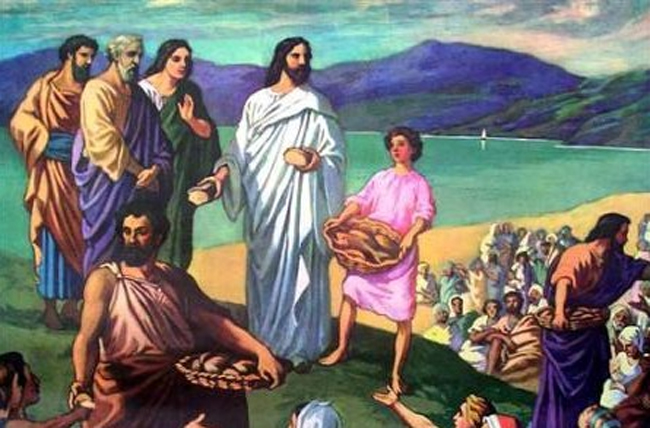Christian Art | Prayer With Jesus | Psalms | Praise To God For His Holiness | King David As A Boy | Audio KJV | Love Revealed By Jesus Christ | King James Audio Bible
Psalm 99 | King James Audio Bible
YouTube: Psalm 99 | KJV | King James Version | Audio Bible | Word Aloud
As the psalmist invites the people to acknowledge God’s reign and greatness, the text resonates with echoes of historical figures, Moses, Aaron and Samuel, expressing the enduring relationship between God and His chosen people. Psalm 99 calls worshippers to stand in awe of the majesty and holiness of God.
The opening line, ‘The Lord reigneth; let the people tremble,’ expresses the psalm’s central theme — the reigning authority of God. Imagery of God sitting between the cherubim depicts divine presence, calling the people to acknowledge God’s sovereign rule. Mere mention of God’s reign elicits a call for the earth to be moved in reverence.
In verse two, the focus shifts to the greatness of the Lord in Zion, emphasizing God’s exalted position above all people. The call to praise the ‘great and terrible name’ of the Lord underscores the holiness attributed to God’s name, inspiring awe and reverence among the worshippers.
Verse four introduces the concept of divine justice: ‘The king’s strength also loveth judgment; thou dost establish equity, thou executest judgment and righteousness in Jacob.’ Here, the psalmist acknowledges the righteous nature of God’s judgments, highlighting His commitment to fairness and equity, especially in the context of the covenant with Jacob.
The call to worship resounds in verse five: ‘Exalt ye the Lord our God, and worship at his footstool; for he is holy.’ Imagery of worshipping at God’s footstool conveys humility and reverence, emphasizing the holiness of the Lord as the foundation of true worship.
Verses six to eight recall the intercessory role of historical figures such as Moses, Aaron, and Samuel. Their righteous actions and faithful calls upon the Lord are acknowledged, highlighting the responsiveness of God to those who seek Him in sincerity. The reference to God speaking to them in the cloudy pillar recalls moments of divine guidance and communication.
The psalm concludes with a reiterated call to exalt the Lord, ‘for the Lord our God is holy’. This final affirmation emphasizes holiness as the defining attribute of God, encapsulating the overarching theme of the psalm.

Psalm 99 | King James Audio Bible
The Lord reigneth; let the people tremble: he sitteth between the cherubims; let the earth be moved.
The Lord is great in Zion, and he is high above all the people.
Let them praise thy great and terrible name; for it is holy.
The king’s strength also loveth judgment; thou dost establish equity, thou executest judgment and righteousness in Jacob.
Exalt ye the Lord our God, and worship at his footstool; for he is holy.
Moses and Aaron among his priests, and Samuel among them that call upon his name; they called upon the Lord, and he answered them.
He spake unto them in the cloudy pillar: they kept his testimonies, and the ordinance that he gave them.
Thou answeredst them, O Lord our God: thou wast a God that forgavest them, though thou tookest vengeance of their inventions.
Exalt the Lord our God, and worship at his holy hill; for the Lord our God is holy.
Psalm 99 | King James Audio Bible
- Divine Sovereignty: The psalm exclaims the reign of the Lord, calling people to tremble in acknowledgment of His sovereign authority.
- Holiness: Emphasis is placed on the holiness of God’s name, portraying a sense of awe and reverence among worshippers.
- Divine Justice: The psalm acknowledges the righteous judgments of God, particularly in the establishment of equity and execution of justice in the context of the covenant with Jacob.
- Worship And Exaltation: The psalm calls for the exaltation of the Lord and worship at His footstool, emphasizing humility and reverence in approaching the holy God.
- Intercession Of Historical Figures: The psalm references Moses, Aaron, and Samuel, highlighting their intercessory roles and the responsiveness of God to those who earnestly seek Him.
- Communication With God: The psalm recalls instances of divine communication, such as God speaking to the mentioned figures in the cloudy pillar, underscoring the intimate relationship between God and His people.
- Call To Holiness: The psalm concludes with a reiterated call to exalt the Lord because of His holiness, reinforcing holiness as a central and defining attribute of God.








